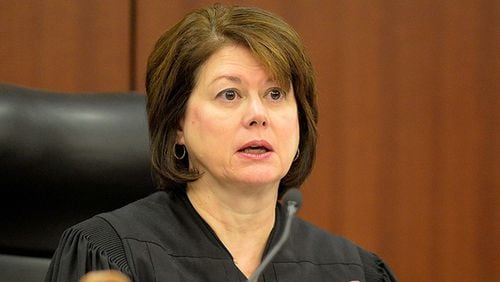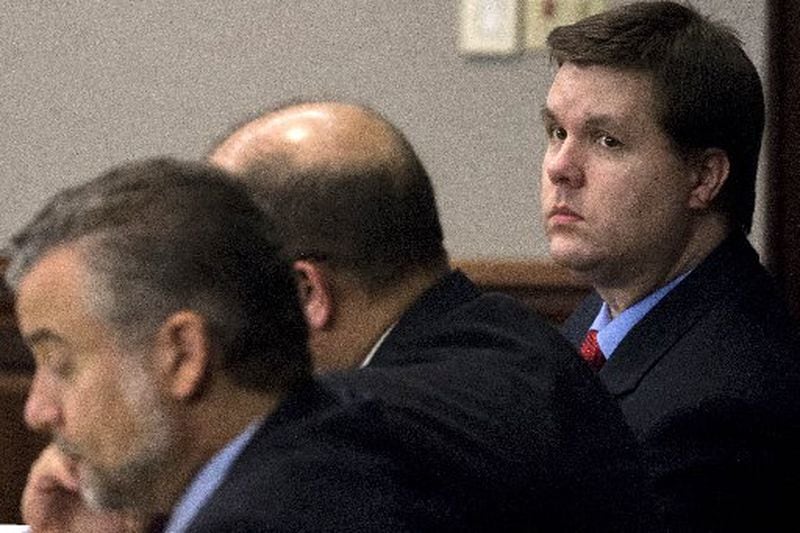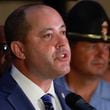The judge who presided over the 2016 murder trial of Justin Ross Harris has denied the former web developer’s motion for a new trial.
Cobb County Superior Court Judge Mary Staley Clark’s ruling, issued late Thursday, came as little surprise. Had she granted a new trial, she would’ve had to admit to key errors on her part. Harris’ lawyers plan to appeal her ruling to the Georgia Supreme Court.
Harris, convicted of purposely leaving his 22-month-old son, Cooper, inside a hot car to die on June 18, 2014, is serving a life sentence plus 32 years at Macon State Prison in south central Georgia. He maintains his son’s death was unintended.
Harris’ original defense team — Marietta attorneys Maddox Kilgore, Carlos Rodriguez and Bryan Lumpkin — claimed Staley Clark prevented them from challenging the credibility of Cobb County police and expert witnesses, a key component of their strategy.
“There was no question at all, ever, in our minds, that we would not be allowed to question a law enforcement officer who had given false testimony under oath in this very case,” Kilgore told The Atlanta Journal-Constitution in December.
The defense said those errors were used only to impugn Harris’ character and were irrelevant to the question of whether Cooper’s death was intentional.
The state, in its response to Harris’ motion for a new trial, argued the evidence supported their theory that the defendant killed his young son “to live a life without children, to be able to divorce his wife and then to have numerous sexual relationships.”
Cobb police Detective Phil Stoddard testified that Harris was involved in a group that promoted a “child-free” lifestyle, a claim Kilgore said was “an outright lie.”
According to the defense, the child-free group had come up in a Google chat with a co-worker, prosecution witness Alex Hall, who sent Harris the link to the Reddit subgroup. Harris’ response? “Grossness!”
In search warrants obtained under oath by Cobb Detective Shawn Murphy, Harris was accused of researching child deaths inside vehicles, including the temperature and length of time needed for that to occur.
The prosecution pointed to a video Harris had watched depicting the dangers of leaving a dog inside a hot car. But Harris didn’t seek out the video, his lawyers said. He watched it after it showed up on his Reddit feed
“This was our big play,” Kilgore said. “To show that detectives were willing to lie under oath.”
In the 2016 trial, the judge granted the state’s motion to prevent the defense from cross-examining Murphy. In Thursday’s ruling, the judge said there was no evidence to indicate the detective harbored any personal bias against Harris.
The judge also defended limits placed on the defense when cross-examining state forensic computer expert Jim Persinger. After conducting what he classified as a thorough review of Harris’ online searches and habits, Persinger concluded the defendant was consumed by sexual fantasies.
On the stand, Persinger offered lurid insinuations about the time Harris spent on a psychologist’s website right before Cooper’s death.
It was clear, defense lawyer Rodriguez testified in December, that Persinger did not know Harris had contracted with the psychologist to develop his site.
“I wanted to confront him with all the easily available, easily discoverable information that would’ve made it clear to him (that Harris) wasn’t involved in some kind of conniving plan to prepare for a criminal trial,” Rodriguez testified. “All that information in reality would expose how biased his investigation was.”
But the defense didn’t get the chance. Staley Clark affirmed her decision to side with the state’s position that you can’t impeach someone with evidence they did not know.
“The right to inquire into partiality and bias … is not without limits,” she wrote.
Marietta attorney Ashleigh Merchant, who has followed the case closely, said the defense has a strong case for appeal.
“I think everyone can agree it was highly prejudicial,” Merchant said of the evidence allowed detailing Harris’ sexual escapades. “How relevant was it? I personally think it’s a leap to say because he wants to live this lifestyle, that must mean he wants his child dead. I just don’t see that.”
About the Author








